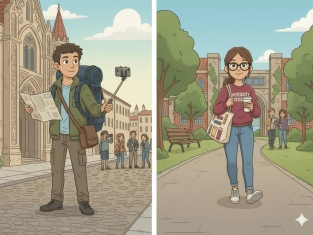Modal Verbs Will Would
Table of Contents
Exercises
Explanation
Will
We use will to express:
-
Future actions or predictions – things that will happen later.
-
The train will arrive at 9:00.
-
I will see you next week.
-
Decisions made at the moment of speaking – when you decide something now.
-
I’m thirsty — I will get some water.
-
You look tired; I will help you with your bags.
-
Promises, offers, and refusals – when you want to show willingness or determination.
-
Don’t worry — I will call you as soon as I arrive.
-
I will not (won’t) forget your birthday.
-
She won’t tell anyone your secret.
-
Predictions or beliefs about the future
-
I think it will rain tonight.
-
He will become a great teacher one day.
Negative form: will not → won’t
Would
We use would to express polite speech, imaginary situations, and past habits.
-
Polite requests and offers
-
Would you like some coffee?
-
Would you mind opening the window?
-
I would like a piece of cake, please.
-
Imaginary or unreal situations (often used with if clauses)
-
If I had a car, I would drive to work.
-
I would travel the world if I had more money.
-
Past habits or repeated actions
-
When we were children, we would visit our grandparents every summer.
-
He would always forget his keys.
-
Refusals or unwillingness in the past
-
My old laptop wouldn’t start yesterday.
-
He wouldn’t listen to anyone.
Negative form: would not → wouldn’t
Will vs. Would
|
Meaning |
Will |
Would |
|
Time |
Future |
Past / Imaginary / Polite |
|
Example |
I will go tomorrow. |
I would go if I had time. |
|
Requests |
Will you help me? |
Would you help me, please? |
|
Offers |
I’ll carry your bag. |
Would you like some tea? |
|
Past habit |
— |
We would play outside as kids. |
Politeness and Softness
Would is often used instead of will to make speech softer and more polite.
Compare:
-
Will you open the door? (direct)
-
Would you open the door, please? (polite)
Quick Tips
-
Will = real future, decisions, or certainty.
I will study after dinner. -
Would = polite, past, or unreal situations.
I would study more if I had time. -
Would like = a polite way to say want.
I’d like a sandwich, please. -
In conditional sentences, would is used in the main clause:
If I were you, I would study harder. -
Will and would never take to before the main verb.
I will to go home. → I will go home.
Summary
|
Function |
Will |
Would |
|
Talking about the future |
✅ |
— |
|
Polite offers / requests |
— |
✅ |
|
Imaginary situations |
— |
✅ |
|
Past habits |
— |
✅ |
|
Immediate decisions |
✅ |
— |
|
Promises / Refusals |
✅ |
✅ (for past situations) |

